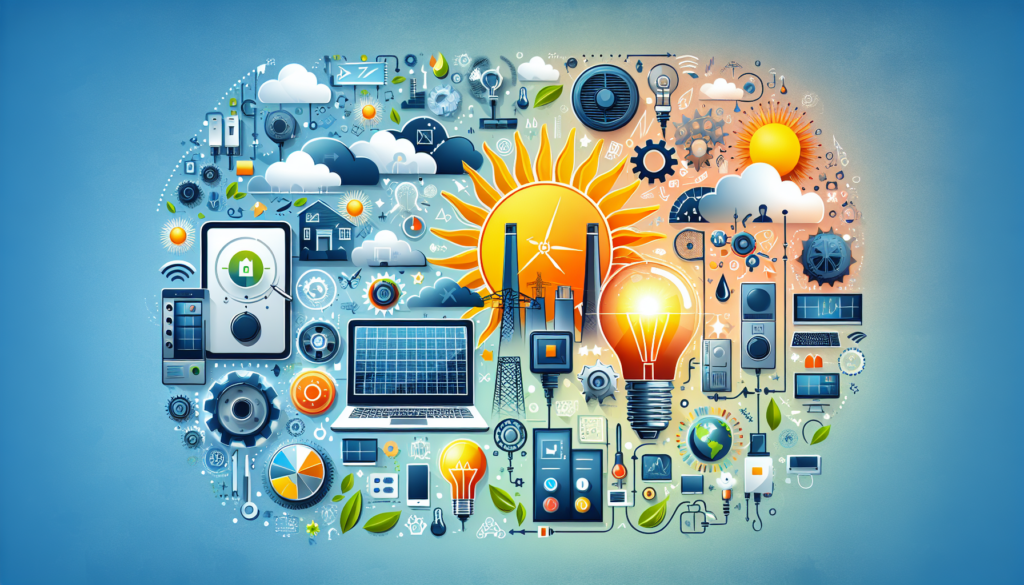In the era where the digital world is rapidly expanding, energy efficiency has emerged as a fundamental pillar for sustaining this fast-paced technological evolution. Given the magnitude of the challenges faced by data centers, network infrastructure, and computing devices in general, the implementation of strategies to optimize energy use is essential both for reducing operating costs and for mitigating environmental impact. This article delves into the techniques and theories that embody the cutting-edge of energy efficiency in the tech sector, offering a comprehensive view of its importance, implementation methodologies, and the advances that are shaping the digital world’s energy future.
Energy Efficiency: Foundations and Relevance
Core Theories and Principles
Energy efficiency is a concept that refers to the optimal use of energy to perform a specific task. This implies that greater efficiency results in lower energy consumption to achieve the same outcome. It is based on thermodynamic theories and principles of systems engineering that seek to minimize energy losses and maximize energy productivity.
In the realm of computing, algorithms and hardware design are studied to improve energy efficiency, such as dynamic frequency scaling and power management through advanced cooling methods.
The Importance in Today’s Environment
With the exponential growth of the Internet of Things (IoT), Artificial Intelligence (AI), and big data, there has been an unprecedented increase in global energy demand. The energy efficiency factor becomes a critical element both to scale digital services sustainably and to minimize the carbon footprint associated with digital operations.
Practical Applications and Advanced Techniques
Data Center Optimization
Data centers consume a significant amount of energy. Techniques such as server virtualization allow multiple operating systems and applications to run on a single physical machine, improving energy utilization. Additionally, the use of passive or liquid cooling systems and design based on thermal distribution play a crucial role in reducing consumption.
Communication Networks
5G networks have begun to implement techniques to reduce energy use, such as the use of self-organizing network topologies (SON) and multiple-input and multiple-output (MIMO) systems that optimize data transfer while minimizing the energy required for transmission.
Microchips and Hardware
The field of hardware has seen impressive advances in energy efficiency with the development of advanced processors. Silicon-on-insulator (SOI) chips, finFET technology, and two-dimensional materials like graphene are increasing performance per watt and reducing heat dissipation.
Software and Algorithms
In the software field, programming must be oriented to be more energy-efficient. The design of efficient algorithms and code optimization have been shown to have a significant impact on energy consumption. Developers are increasingly aware of the importance of considering energy efficiency during the software creation process.
Comparison and Evolution
Advances Compared to Previous Work
Compared with preceding technologies, the current integration of artificial intelligence and machine learning in system management creates self-administering and self-optimizing environments. This significantly exceeds the static efficiency protocols that were prevalent a decade ago.
Projections and Future Innovations
Looking ahead, research into more efficient materials, quantum computing, and the proliferation of edge computing are anticipated to significantly increase the energy efficiency of the technology sector.
Case Studies
Google DeepMind and Data Center Efficiency: Google reported that using DeepMind’s AI reduced the amount of energy used for cooling their data centers by 40%, setting a significant precedent for how AI can contribute to energy efficiency at the highest level of demand.
Green Supercomputers: Projects like SuperMUC-NG in Germany use direct liquid cooling systems and are exclusively powered by renewable energy sources, serving as a model for how high-performance infrastructures can also be sustainable.
In conclusion, it is clear that energy efficiency in the digital world is crucial for a sustainable and resilient future. From theory to practice, progress in this field continues to evolve, offering hope and direction for the impending energy needs of our constantly digitalizing planet. Ongoing initiatives and future innovations are shaping up to be the pillars upon which a more efficient and less energy-demanding digital world will be built.

